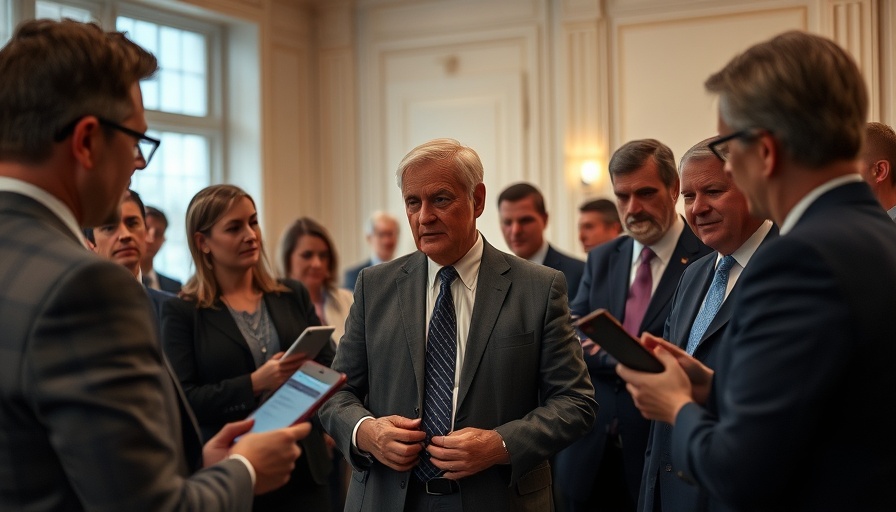
Trump's Tariffs: The New Division in Republican Ranks
In a political landscape already fraught with tension, the return of Trump-era tariffs threatens to create deeper rifts among Republicans. Traditionally, the GOP has championed free trade; however, the revival of tariffs as a tool for economic and foreign policy is causing a schism between traditionalists and populists within the party. It raises important questions about the future of Republican unity and the potential implications for the 2025 elections.
Understanding the Context: The Legacy of Trump's Trade Policies
Trump's initial tariffs were introduced to protect the U.S. steel and aluminum industries, among others, promising to bring back jobs and boost manufacturing in America. His supporters admired these moves as essential to American economic nationalism, while critics labeled them harmful to the global trade system.
Experts highlight that these tariffs led to various retaliatory measures from trading partners, which in many cases resulted in higher prices for American consumers and manufacturers. Fast forward a few years, and it appears that many of those very concerns are resurfacing as the Republican Party grapples with how to balance protectionist sentiments with traditional economic principles.
Relevance to the Bay Area Economy: Tech Giants and Tariff Impacts
For Bay Area businesses, particularly Silicon Valley startups and larger tech firms, the implications of Trump's tariffs are not abstract but incredibly concrete. With China being a key player in technology supply chains, increased tariffs could alter the landscape for tech companies relying on imported materials, components, and hardware. This could slow down the pace of innovation—potentially impacting funding streams and market competitiveness.
Additionally, increased operational costs from tariffs may deter startups from investing in growth strategies or venture capital funding, as profit margins shrink and the economic landscape grows more uncertain. Entrepreneurs within the Bay Area need to stay vigilant about the changes in trade regulations and adapt their strategies accordingly.
Expert Opinions: What Analysts Are Saying
Political analysts suggest that as the Republican Party confronts these internal divisions, there may be a push for a return to classical economic policies. However, the challenge lies in reconciling the populist wing that commands significant voter loyalty with traditional party elites who advocate for free markets and trade agreements.
Some forecast that the GOP may face increasing difficulties in presenting a united front if these trade issues are not addressed carefully. The trade-related discourse could evolve as a core issue positioning in the upcoming elections, with candidates needing to identify whether their base values protectionism or a return to more open trade.
Looking to the Future: Economic Predictions and Opportunities
The re-emergence of tariffs under a potentially second Trump term could prompt shifts within the Bay Area's business landscape. Analysts project that industries heavily influenced by international trade—like technology and manufacturing—may need to explore alternative markets or innovate their supply chains in response to higher tariffs.
Moreover, this scenario has spurred calls for businesses to rethink their operational strategies in light of trade uncertainty. Holding diversified portfolios and adapting to new consumer behavior could become critical for sustainability in the evolving economic climate.
Conclusion: Preparing for Change in the Business Environment
The landscape of the GOP and Republican alignment on tariffs is not just a political issue; it's fundamentally tied to the economic health of key industries. As entrepreneurs and businesses watch these developments closely, there is a real need for adaptability and strategic foresight to navigate potential challenges arising from the evolving tariff policies. In this moment, the Bay Area's business community must be proactive—investing in growth strategies that are resilient to changes in the coming political and economic landscape.
As we observe the unfolding events, it’s vital for Bay Area entrepreneurs and investors to stay informed about potential shifts in regulations and market dynamics, as these will undoubtedly shape the future of business in our region.
 Add Row
Add Row  Add
Add 



Write A Comment